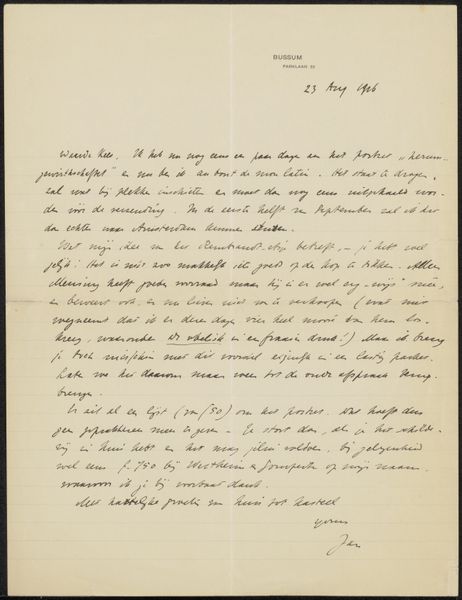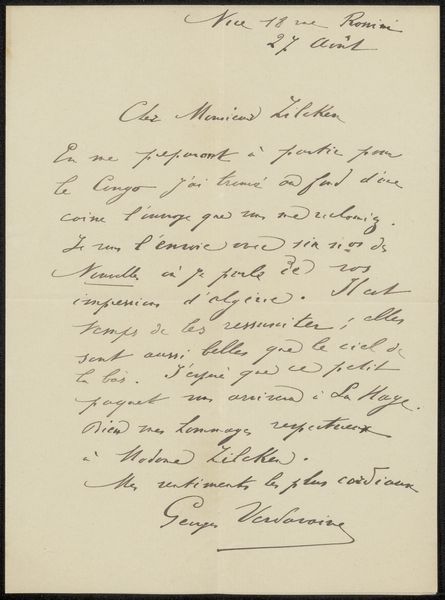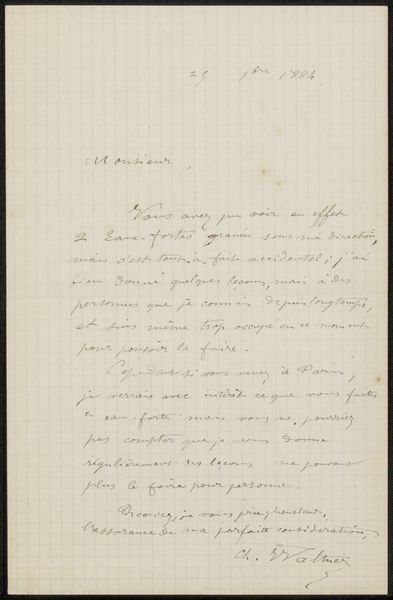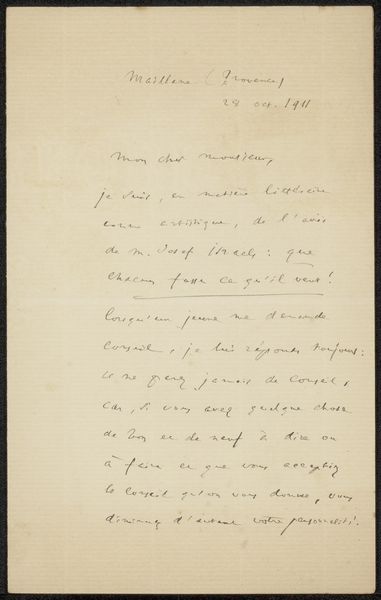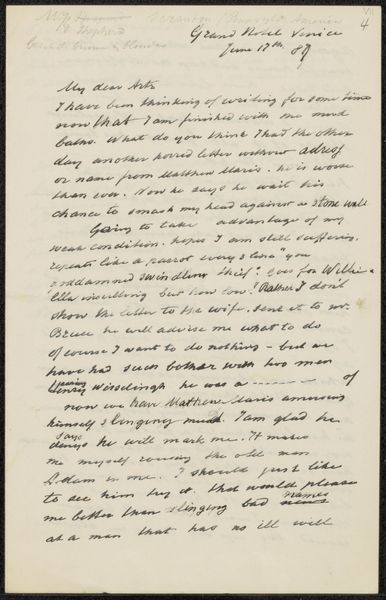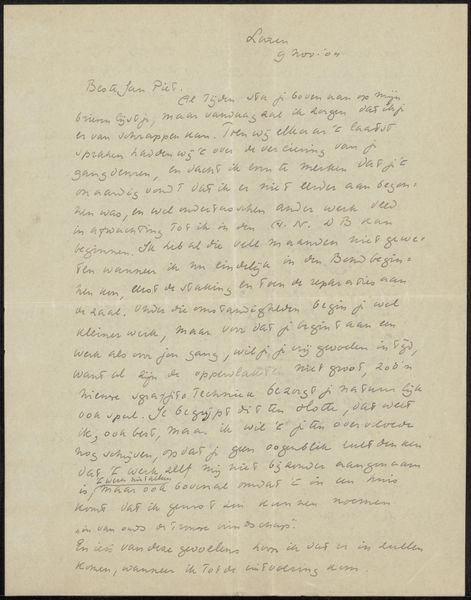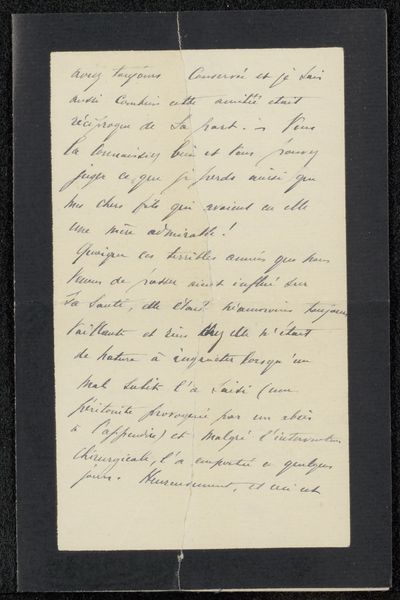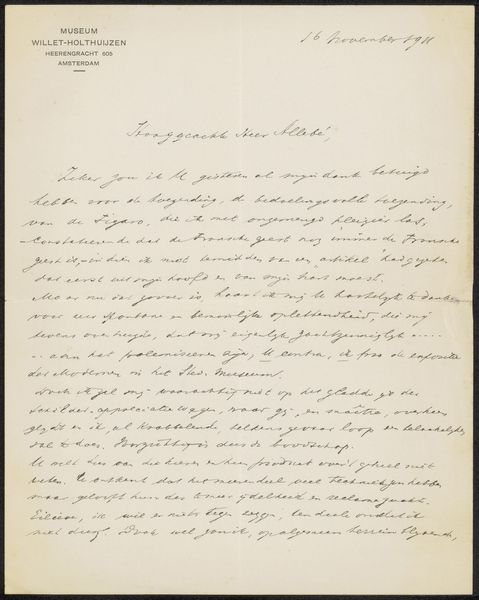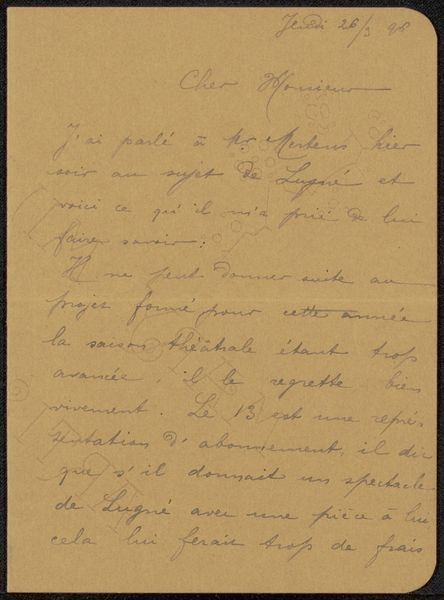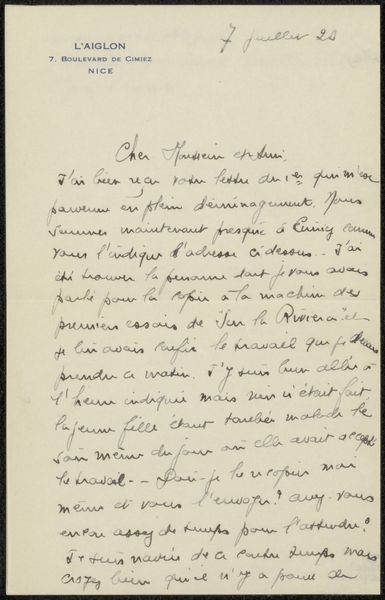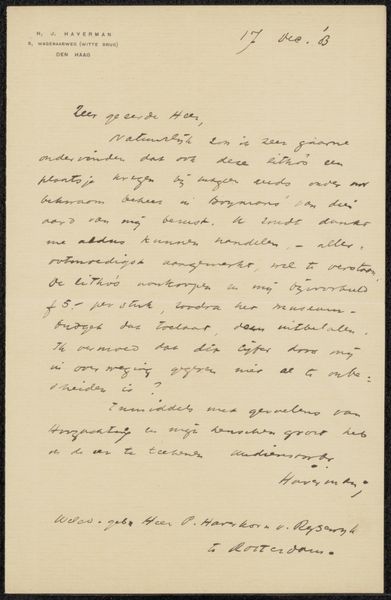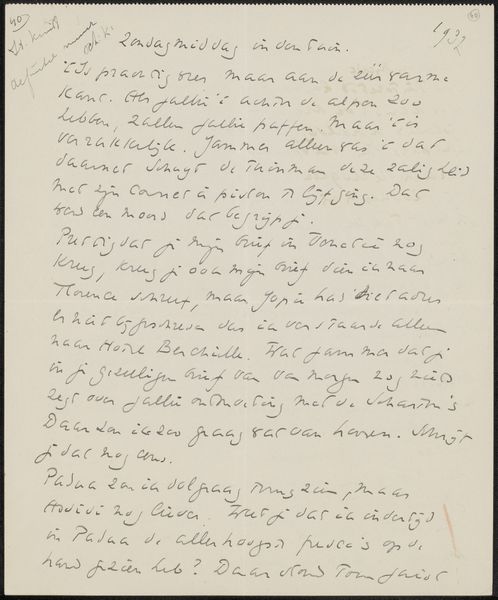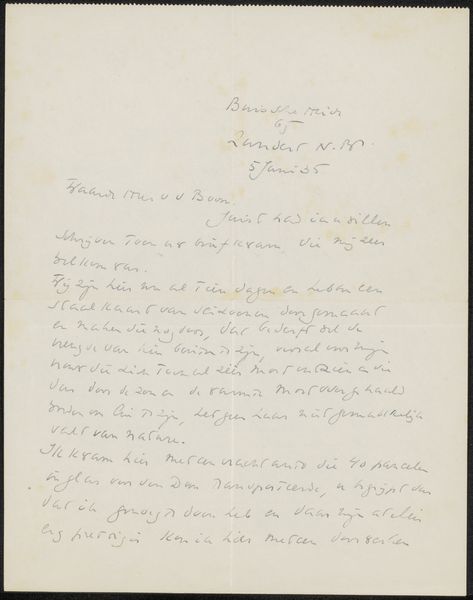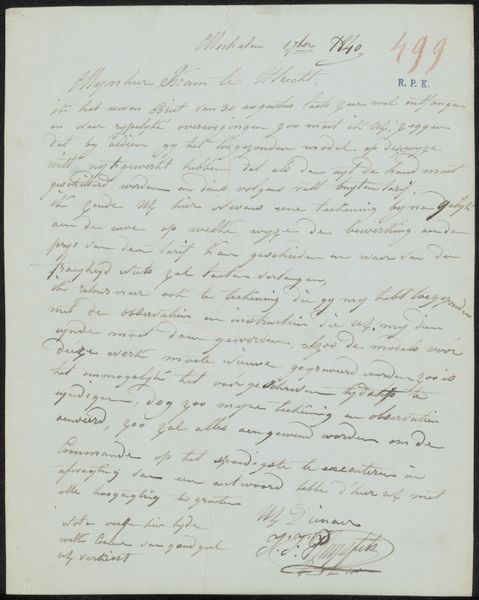
#
aged paper
#
toned paper
#
ink paper printed
#
old engraving style
#
hand drawn type
#
personal sketchbook
#
ink drawing experimentation
#
pen work
#
watercolour illustration
#
watercolor
Copyright: Rijks Museum: Open Domain
Curator: This piece, "Brief aan Philip Zilcken," possibly from 1927, strikes me as intensely personal, a window into a private dialogue. Editor: Yes, it feels very intimate. It looks like a letter, maybe a draft? All this handwritten text on aged paper creates a very tangible sense of history. What can you tell me about it? Curator: Well, it is definitely an important reflection of a certain moment in time and place! Think about the social context. Letters were vital then; they reveal so much about relationships, intellectual life. It speaks to networks of artists and intellectuals, their means of communication. Editor: I see what you mean. The handwriting, though difficult to decipher completely, gives a sense of the writer's personality, their flow of thought... Curator: Exactly. The form itself—a handwritten letter—privileges certain voices. We might ask whose stories are typically preserved this way, whose are lost? What does it mean to have access to such intimate communications when so many others are systematically excluded from the historical record? Editor: So, by looking at something like this, we're also confronting questions about power, representation, and whose narratives are considered important? Curator: Precisely. The simple act of preserving and displaying this letter forces us to ask these questions. Consider, too, that the "personal" is always political. This letter is more than just a note; it’s a cultural artifact loaded with social and historical significance. Editor: That makes me look at it very differently. I initially saw it as a simple artifact. Curator: Which shows us how vital that critical engagement is, with context and broader social factors in mind!
Comments
No comments
Be the first to comment and join the conversation on the ultimate creative platform.
